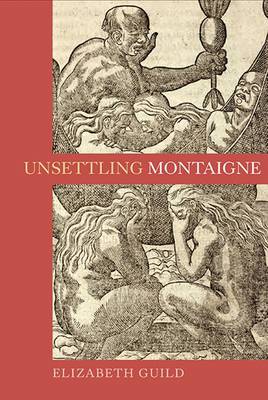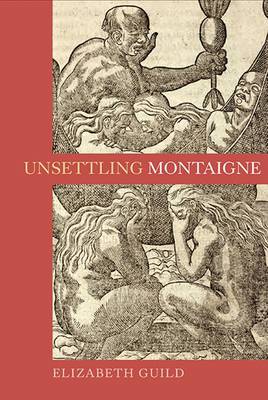
Bedankt voor het vertrouwen het afgelopen jaar! Om jou te bedanken bieden we GRATIS verzending (in België) aan op alles gedurende de hele maand januari.
- Afhalen na 1 uur in een winkel met voorraad
- In januari gratis thuislevering in België
- Ruim aanbod met 7 miljoen producten
Bedankt voor het vertrouwen het afgelopen jaar! Om jou te bedanken bieden we GRATIS verzending (in België) aan op alles gedurende de hele maand januari.
- Afhalen na 1 uur in een winkel met voorraad
- In januari gratis thuislevering in België
- Ruim aanbod met 7 miljoen producten
Zoeken
€ 209,45
+ 418 punten
Omschrijving
Montaigne's Essais (1580-1592) are one of the most remarkable works of the European Renaissance. The Essais' innovative open-mindedness is at odds with the dogmatism and intolerance of their times, the decades of civil and religious wars in France, and their tolerant and searching human questions and ethics of difference remain compelling for twenty-first century readers. But the sceptical open-endedness that vitalizes this writing is also often troubled and troubling: personal losses and the collapse of cultural ideals moved Montaigne to write, and their attendant anxieties are not resolved into tranquil reflection. Unsettling Montaigne reassesses Montaigne's scepticism. Informed by psychoanalytic and related theory, its close attention to Montaigne's complex uses of metaphor illuminates the psychic economy of his scepticism and tolerance and their poetics, while new readings of his Essais and other texts reveal the significance of disquieting questions, thought and affect for the ethos his writing fosters
Specificaties
Betrokkenen
- Auteur(s):
- Uitgeverij:
Inhoud
- Aantal bladzijden:
- 306
- Taal:
- Engels
- Reeks:
- Reeksnummer:
- nr. 34
Eigenschappen
- Productcode (EAN):
- 9781843843719
- Verschijningsdatum:
- 17/04/2014
- Uitvoering:
- Hardcover
- Formaat:
- Genaaid
- Afmetingen:
- 156 mm x 234 mm
- Gewicht:
- 607 g

Alleen bij Standaard Boekhandel
+ 418 punten op je klantenkaart van Standaard Boekhandel
Beoordelingen
We publiceren alleen reviews die voldoen aan de voorwaarden voor reviews. Bekijk onze voorwaarden voor reviews.









